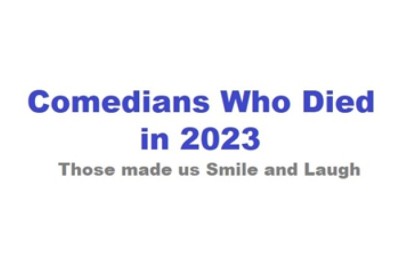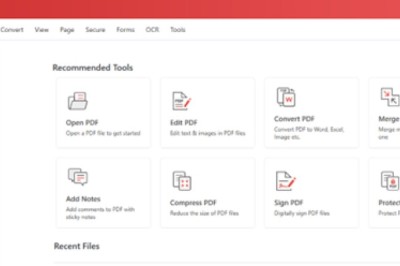views
When attention-deficit/hyperactivity disorder (ADHD) was first treated medically, there were only a few pharmaceutical drugs available. Today, that is certainly not the case. In fact, there are both stimulant and even non-stimulant options that can be used to treat ADHD. However, the vast majority of medications used are still part of the drug class known as stimulant drugs- and the most potent one of all time is currently in phase 3 of clinical trials. Here’s what you need to know about this new version of Dexmethylphenidate and how it relates to currently available prescription stimulant drugs.
Trial and Error
Since the 1930s, ADHD has been caught in the middle of the trials and errors of medical professionals to find a drug with the highest benefit and the lowest risk. The first medication used was Benzedrine, an amphetamine that already had a growing popularity in its use among military soldiers on both sides of the World War II conflict. While other medications followed, the most notable included the use of Ritalin in the 1960s. This drug would continue to increase in popularity, with a 1970 Washing Post report claiming that between 5 and ten percent of Omaha Nebraska students were taking either Ritalin or Dexedrine. Only a year later, the United States Drug Enforcement Administration (DEA) made these drugs Schedule II substances, meaning that they have a high potential for abuse, can lead to severe psychological dependence, and are considered dangerous in most cases. For reference, the Schedule II category is shared with other notorious drugs today, such as OxyContin, fentanyl, and the most popular prescription stimulant that came on the market in the 1990s, Adderall.
Comparing Drug Types and Potency
To understand how all of these drugs compare, it’s important to distinguish between the medication itself and the brand name it is called by. This is especially true when it comes to understanding the potential dangers of the newest ADHD medication currently in clinical trials. Of the three most notable stimulants mentioned: here is how they are categorized:
● Adderall: Amphetamine and Dextroamphetamine
● Dexedrine: Dextroamphetamine
● Ritalin: Methylphenidate
● Focalin: Dexmethylphenidate
In the names, you can see a similarity between Adderall and Dexadrine, and between Ritalin and Focalin. In both cases, the drugs with the “dex” prefix are more potent and are normally administered at a smaller dosage with a longer duration. While Adderall and Ritalin and probably the most well-known names of stimulant drugs, they have certain similarities and differences. Both drugs work in a similar way, can have many of the same symptoms or side effects, and have proven to be effective in some individuals for the treatment of ADHD. However, while both drugs can come in the same dosage amounts, Ritalin typically works more quickly compared to Adderall while Adderall lasts anywhere from one to three hours longer than the effects of Ritalin. These numbers will all vary depending on each individual, of course. Dexedrine and Focalin share the same kinds of features when compared to each other. They are both more potent than their counterparts Adderall and Ritalin due to their atomic arrangement.
Cingulate Comes Onto the Scene
This is where the importance of the newest drug shouldn’t be understated. Currently, Focalin is available on the market in both Focalin and Focalin XR and can be taken in several dosage amounts. The Food and Drug Administration recognizes that this drug is classified by the DEA as a Schedule II drug and has gone to identify it with their black box warning, noting that it can lead to chronic abuse, abnormal behaviour, and psychological dependence, and should be given cautiously to someone how may have a history of other drug dependence including alcohol. The FDA’s black box warning is their highest warning level for drugs that have the potential to be both abusive and deadly.
However, even Focalin XR, the extended-release version of Focalin which can be expected to last from eight to ten hours, is not as potent as the drug that is currently in clinical trials.
Designated as CTx-1301, this extended-release version of dexmethylphenidate is expected to begin working in less than 30 minutes and can be expected to last almost twice as long as Focalin XR, with “up to 16 hours of efficacy”. The way this medication works is by delivering three different releases of the medication throughout the day. According to the CEO of Cingulate, the Kansas City company behind this new medication, the hope is the make this drug a once-a-day stimulant with no rebound or burnout symptoms that plague the multi-dose versions currently available. One thing to look for in the future is how Cingulate will attempt to take over the stimulant drug market in the coming years, with two other medications currently being researched: buspirone hydrochloride (CTx-2103) and dextroamphetamine (CTx-1302).
“It Works” or “It’s Worse”?
While Cingulate does not expect to be able to file a new drug application (NDA) with the FDA until the first half of 2024, this does raise some potential positive and negative news when it comes to the abusive nature of stimulant drugs used to treat ADHD and other symptoms. The current data regarding stimulant drugs have shown that these drugs can carry a high risk to cardiovascular health in some, with varying degrees of addiction potential, and overdose risks, especially for illicit forms of these drugs. The advent of Cingulate’s ADHD medication could result in providing an accessible, long-lasting drug that does away with the need to take more medicine throughout the day and work more in harmony with the brain and body in its 3-phase release mechanism.
However, it should not be overlooked that this drug is the most potent form of dexmethylphenidate so far. While it may show promising results, it could end up being the latest drug responsible for an increase in stimulant addiction and overdose rates, especially because many people are not used to taking stimulant doses that remain in their system for up to sixteen hours at a time. If you or someone you know is currently addicted to stimulant drugs, the best pathway forward is to seek professional medical treatment. Not only will this eliminate the need for newer versions of the same abusive substances, but it will set you on your way to recovery and wellness.
Sources
Public Broadcasting Station. (2019 May 8). World War Speed: About the Film. Retrieved https://www.pbs.org/wnet/secrets/world-war-speed-world-war-speed-about-the-film/4306/#:~:text=Allied%20commanders%20believed%20Benzedrine%2C%20an,II%20is%20an%20ongoing%20controversy.
Very Well Mind. (2022 May 12). ADHD History and Medication Timeline. Retrieved https://www.verywellmind.com/adhd-history-of-adhd-2633127
Washington Post. (1996 March 5). Attention Deficit Disorder. Retrieved https://www.washingtonpost.com/archive/lifestyle/wellness/1996/03/05/attention-deficit-disorder/c3c72c65-bd93-472d-aa99-3622ad6f5d36/
United States Drug Enforcement Administration. (2018 July 10). Drug Scheduling. Retrieved https://www.dea.gov/drug-information/drug-scheduling
National Library of Medicine. (2013 June 27). Amphetamine, Past, and Present: A Pharmacological and Clinical Perspective. Retrieved https://www.ncbi.nlm.nih.gov/pmc/articles/PMC3666194/
ADDitude Magazine. (2023 February 24). The Top ADHD Medications for Children — Rated by Readers. Retrieved https://www.additudemag.com/adhd-medications-strattera-concerta-adderall-vyvanse-evekeo-ritalin-focalin-dexedrine/
Delphi Health Group. (n.d.). Methylphenidate (Ritalin) vs Adderall. Retrieved https://delphihealthgroup.com/stimulants/adderall/vs-ritalin/
ADDitude Magazine. (n.d.). Focalin: ADHD Medication Retrieved https://www.additudemag.com/adhd-medications-strattera-concerta-adderall-vyvanse-evekeo-ritalin-focalin-dexedrine/
Science Direct. (2017). Attention Deficit-Hyperactivity Disorder. Retrieved https://www.sciencedirect.com/topics/neuroscience/dexmethylphenidate#:~:text=Dexmethylphenidate%20is%20the%20D%2Dthreo%2Denantiomer%20of%20methylphenidate.
Mayo Clinic. (2023 February 1). Dexmethylphenidate (Oral Route). Retrieved https://www.mayoclinic.org/drugs-supplements/dexmethylphenidate-oral-route/side-effects/drg-20067099?p=1#:~:text=Dexmethylphenidate%20is%20used%20to%20treat,concentrate%2C%20or%20are%20easily%20distracted.
United States Food and Drug Administration (2012). Novartis: Focalin, dexmethylphenidate hydrochloride tablets. Prescribing Information. Retrieved https://www.accessdata.fda.gov/drugsatfda_docs/label/2012/021278s015lbl.pdf
United States Food and Drug Administration (2017 January). Focalin XR (dexmethylphenidate hydrochloride) Extended-Release. Retrieved https://www.accessdata.fda.gov/drugsatfda_docs/label/2017/021802s033lbl.pdf
Psychiatric Times. (2023 January 5). Trial of ADHD Medication with Fast Onset of Action, Entire Active Day Efficacy Initiated. Retrieved https://www.psychiatrictimes.com/view/trial-of-adhd-medication-with-fast-onset-of-action-entire-active-day-efficacy-initiated
Cingulate. (n.d.). Proprietary Development Pipeline Overview. Retrieved https://www.cingulate.com/pipeline/pipeline-overview
Cingulate. (n.d.). Cingulate Initiates Phase 3 Study of Lead Asset CTx-1301, Designed as a True Entire Active-Day Treatment for ADHD. Press Release. Retrieved https://www.cingulate.com/news-releases/news-release-details/cingulate-initiates-phase-3-study-lead-asset-ctx-1301-designed
Delphi Health Group. (n.d.). Stimulant Addiction. Retrieved https://delphihealthgroup.com/stimulants/
























Comments
0 comment